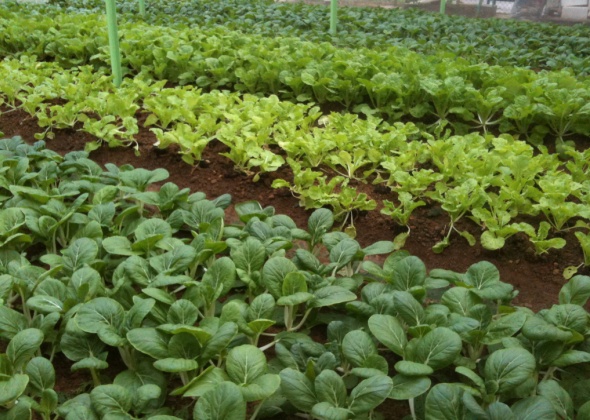
The Minister for the Environment and Water Resources recently launched 2020: Singapore Food Story to focus efforts on enhancing Singapore’s food security. Singapore will manage our food supply in three baskets: diversify our food sources; support our companies to grow overseas; and grow local under our 30 by 30 vision (grow enough food in Singapore to meet 30% of our nutritional needs by 2030).
As part of the Singapore Food Story, businesses can help to contribute to Singapore’s food security. Here are 3 suggestions on how businesses can contribute:
1. Support our local produce
Local produce is grown in Singapore and is safer, fresher and lasts longer. There is less spoilage and food waste, as the produce does not need to travel for long periods of time. It also means a lower carbon footprint to bring food to the table. The Singapore Food Agency (SFA) has consulted industry partners to design a new label to help people identify local produce. The new label will be rolled out on local produce in August.
Businesses that serve food, have in-house food catering for staff, or cater food for events, can work with internal staff and external vendors to use local produce for the food menu. Businesses can also encourage employees to purchase local produce through organising education and awareness activities in the office, or organising fun tours to local farms. Examples of local food producers and farms include ComCrop, Edible Garden City, Kok Fah Technology Farm, Green Circle Eco-Farm, and the various farms at the Kranji Countryside.
2. Reduce food waste in your business
If your company is in the food industry, find out how to reduce food waste through the food waste minimisation guidebooks developed by the National Environment Agency (NEA). NEA has worked with various industry stakeholders to develop these guidebooks for food retail companies, supermarkets and food manufacturing companies to reduce food waste across the supply chain.
If your business is not in the food industry, you can start a food waste reduction programme to raise awareness among employees on tips for reducing food waste. NEA can provide collateral materials such as posters and stickers for companies to place in the office pantries.
3. Donate unsold or excess food
Food manufacturers, food retail businesses and supermarkets can contact food distribution charities such as Food Bank Singapore and Food from the Heart to donate their unsold and excess food.
Companies not in the food industry can play a part by organising excess food donation drives or adopt a food bank box to be placed at their premises to allow employees or the public to drop off their excess unexpired food items. Companies can also encourage employees to volunteer at the food distribution charities to sort and distribute the food items to the needy.
Image source: Growing Leafy Vegetables by Derrick Ng, Save Food Cut Waste

1 thought on “3 suggestions on how your business can contribute to the Singapore Food Story”